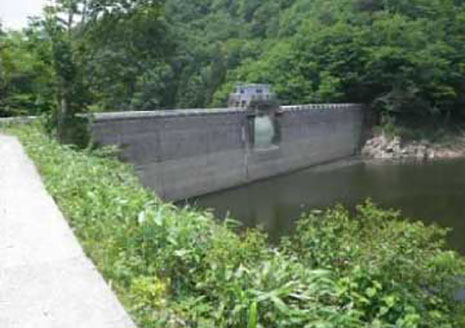ESG Investment and Financing
- JAPAN POST BANK ESG Investment and Financing
- Investment and financing in Green Bonds, etc.
- Investment in Regional Revitalization Funds (Impact Investment)
- Investment in Companies Working to Reduce Environmental Impact
- Investment and Financing with Consideration for the Environment and Society
- Constructive Dialogue (Engagement) with Investees and Borrowers and the Exercise of Voting Rights
- Initiatives as a Long-term Institutional Investor
JAPAN POST BANK ESG Investment and Financing
Promotion of ESG Investment and Financing
In its Medium-term Management Plan announced in May 2021, JAPAN POST BANK set forth its commitment to the advancement of ESG investment and financing, setting the target KPI of increasing its balance of ESG-themed investments* to ¥4 trillion by FY2026/3. (The initial target of ¥2 trillion was doubled in March 2022.) While enhancing returns on assets under appropriate risk management, we will support initiatives for reducing greenhouse gas (GHG) emissions throughout the whole of society through the advancement of ESG investment and financing, such as investing in green bonds/loans.
The status of ESG investment and financing is regularly reported to the Board of Directors and managed appropriately under its supervision.
- *:
- ESG bonds (green bonds, social bonds, sustainability bonds, etc.), loans to the renewable energy sector, and regional revitalization funds, etc.
ESG Investment and Financing Policy
JAPAN POST BANK has established ESG Investment and Financing Policy (hereafter "this Policy") to appropriately address environmental issues such as climate change and biodiversity, social issues such as the violation of human rights, and to secure stable returns over the medium- to long-term and reduce risk. This Policy applies to all of the investment and financing directly carried out by JAPAN POST BANK.*
In this Policy, matters such as those concerning proactive investment and financing and sectors to be aware of when investing or financing are established and revised by the Management Committee after discussions at various meetings including the Sustainability Committee. We regularly review this Policy by the Sustainability Committee and the Management Committee to make further improvements when necessary.
- *:
- JAPAN POST BANK offers loans for corporate borrowers via a syndicate to provide syndicated loans. The operations of JAPAN POST BANK are restricted under the Postal Service Privatization Act. Therefore, to carry out operations not permitted when the postal service was privatized, such as loans for corporate borrowers performed by general commercial banks, the Bank must obtain the approval of the Prime Minister or the Minister for Internal Affairs and Communications.
Related Information
ESG Investment and Financing Policy
Investment and financing in Green Bonds, etc.
As an initiative to take climate change as an opportunity, JAPAN POST BANK actively invests in financial instruments such as green bonds and provides finance.
Examples of Investment in Green Bonds and Other Bonds
Investment in Green Bonds Issued by the Incorporated Administrative Agency Japan Housing Finance Agency (JHF)
JHF offers Flat 35 S loans, which have reduced interest for a fixed period, for borrowers who acquire high-quality, energy-saving, and earthquake-resilient homes. JHF also issues green bonds to finance its purchase of home loans for newly built houses that meet the energy saving technical standard under the Flat 35 S.
In addition to including JHF's Flat 35 S in its housing loan lineup, JAPAN POST BANK also invests in JHF's green bonds, thereby contributing to the spread of environmentally friendly housing and implementing and supporting initiatives that mitigate climate change.
Related Information
Investment in Social Bonds Issued by Japan Expressway Holding and Debt Repayment Agency (JEHDRA)
JAPAN POST BANK invests in social bonds issued by JEHDRA. These funds are allocated to refinance debt in JEHDRA's expressway business and are utilized to resolve the social issues of sustainable and resilient national land creation and regional revitalization and community vitalization.
In addition, as the target operations of JEHDRA's social bonds are connected to SDG 13, "Take urgent action to combat climate change and its impacts," which concerns resilience toward and strengthening the ability to adapt to climate-related disasters and natural disasters, JAPAN POST BANK is supporting initiatives that contribute to adapting to climate change through investment and financing.


Extract from explanatory materials for investors published by JEHDRA
Related Information
Investment in Sustainability Bonds issued by Tokyo Waterfront Area Rapid Transit Co.
The funds invested by Japan Post Bank in the company's Sustainability Bonds are used to refinance existing investments in sustainability (green and social) qualified projects, contributing to the realization of the company's Mid-term Management Plan 2022, which includes "contributing to the development of communities along the railway lines and sustainable urban development."


From the website of Tokyo Waterfront Area Rapid Transit Co.
Related Information
Investment in SDG bond investment trusts (ESG Funds)
We invest in investment trusts whose main investment targets are bonds in which the funds raised are allocated to projects that contribute to the SDGs (SDGs bonds), such as green bonds, social bonds, and sustainability bonds. By investing in SDGs bonds through investment trusts, we expect to actively contribute to solving social issues and secure stable returns (increase in corporate value) over the medium to long term.
In selecting investment trusts, we confirm the ESG analysis and monitoring systems and track record of the management company in regard to issuers and the issues in which it invests.
Examples of Financing Green Loans and Other Loans
Participation in Green Loans under the PFI Scheme (Tottori Prefecture hydroelectric plant re-improvement and operation business)
JAPAN POST BANK is participating in the joint financing of projects for businesses managed by the lead-managing underwriter, Sumitomo Mitsui Banking Corporation (SMBC), which is operating under the PFI concession system and is involved in projects such as the redevelopment and operation of hydroelectric power plants in Tottori Prefecture.
The "SDGs Green Loan" is a product provided by SMBC which they limit to the use of environmentally friendly businesses and verify specific requirements for financing. Additionally, SMBC examines the relevance of the target businesses' SDGs through methods such as high-level mapping that reflects sustainable development goals including investment in green bonds and social bonds, and due to this the loan scheme has been highly regarded by external assessment organizations.


Related Information
Participation in Mitsui Fudosan's Sustainability Linked Loan (joint financing)
JAPAN POST BANK is participating in joint financing for Mitsui Fudosan Co., Ltd.'s Sustainability Linked Loan, which is managed by lead underwriter, MUFG Bank, Ltd. In sustainability linked loans, borrowers set sustainability performance targets (SPTs) in accordance with their sustainability goals. Loan terms such as interest rates are then linked to the level of their SPT achievement to promote and support environmentally and socially sustainable economic activities and growth. It is the first time JAPAN POST BANK has participated in this sort of initiative.
This project is in line with the Sustainability Linked Loan Principles set forth by the Loan Market Association, an international financial industry association, and other organizations.
The SPTs are defined as "reducing Scope 1 emissions (direct emissions) + Scope 2 emissions (indirect energy-derived emissions) of the Mitsui Fudosan Group's overall greenhouse gas emissions by 46.2% by FY2030 (compared to FY 2019)," and the interest rate is structured to fluctuate according to the achievement of these targets.
Related Information
Investment in Regional Revitalization Funds (Impact Investment)
Investment in regional revitalization funds
Based on its purpose to "contribute to the development of society and the region," JAPAN POST BANK has set forth "enhancing funds flow to regional communities and the regional relationship functions through various frameworks" as a key strategy in its Medium-term Management Plan announced in May 2021. Under this strategy, we will supply risk money (equity funds) to small and medium-sized enterprises that play an important role in regional revitalization through regional revitalization funds and other means. We have defined these forms of investment as "proactive investment and financing" in our ESG Investment and Financing Policy, and we are promoting them accordingly.
In terms of specific fields of investment, in addition to funds that support growth, business succession, and the starting and founding of businesses, we have a wide range of funds that support small and medium-sized enterprises working on revitalizing areas damaged by disasters such as earthquakes and typhoons or whose business environment has been negatively impacted by COVID-19. In this way, we supply funds to various fields that contribute to the revitalization of regional communities.
We also provide funds to small and medium-sized enterprises, etc. in almost all of Japan through funds that invest in specific prefectures and funds that invest throughout the country.
We had participated in a cumulative total of 45 funds as of the end of FY2023/3, and have committed to investing a cumulative total of approximately \25 billion. Currently, more than 400 small and medium-sized enterprises have been supported through investment from the regional revitalization funds the Bank participates in.
Through these initiatives, we facilitate the flow of the precious funds entrusted by our customers to regional communities, thus contributing to regional revitalization.
Related Information
ESG Investment and Financing Policy
Vitalization of Regional Economies
Investment in Impact Funds (impact investment)
JAPAN POST BANK invests in the Japan Post Investment Regional Development and Impact Fund I, ILP that Japan Post Investment Corporation, our consolidated subsidiary, established in April 2022. This fund aims to establish a sustainable society by investing in companies and businesses that contribute to the revitalization of regional community economies and create social impact geared toward achieving the SDGs. Specifically, by investing in small and medium-sized enterprises, venture companies, and regional development projects in Japan that have a variety of growth capital, business succession and other needs, Japan Post Investment Corporation will contribute to the achievement of the SDGs. In facilitating funds flow to regional communities, the company will revitalize regional community economies and create a positive impact on society. Among its investment targets, the company will work to create a positive impact by pursuing both a social and economic return, especially when investing in companies and businesses that have a social impact, as impact investments.
Related Information
Investment in Companies Working to Reduce Environmental Impact
Investing in the Ministry of the Environment's Japan Green Investment Corp. for Carbon Neutrality
Based on the Revised Act on Promotion of Global Warming Countermeasures which went into effect on July 1, 2022, the Ministry of the Environment has established the Japan Green Investment Corp. for Carbon Neutrality, which is a new company that will be capitalized with government fiscal investment and loans and private investment. The new company aims to invest in businesses that contribute to de-carbonization and serve as a function for redirecting large amounts of private ESG funds to de-carbonization investments. JAPAN POST BANK has endorsed this initiative and is investing in the Japan Green Investment Corp. for Carbon Neutrality.
Related Information
Investing in the Japan Green Investment Corp. for Carbon Neutrality (Japanese version only)
Investing in a New Company for Establishing a Renewable Energy Fund
JAPAN POST BANK invested in "Z Energy Co., Ltd.," which is engaged in the establishment and operation of renewable energy funds, as well as that company's "Carbon Neutral Fund 1 Investment Limited Partnership." Through this investment in the company, we are working to further spread the use of and expand the market for renewable energy in order to address the global social issue of climate change, achieve carbon neutrality for Japan by 2050, and construct a carbon-free society. At the same time, we will also make every effort to contribute to regional vitalization projects involving renewable energy.
Related Information
Investing in a New Company for Establishing a Renewable Energy Fund (Japanese version only)
Investment in the Carbon Neutral Fund 1 Investment Limited Partnership (Japanese version only)
Investment and Financing with Consideration for the Environment and Society
In its fund management operations, JAPAN POST BANK appropriately considers environmental and social issues, such as climate change and biodiversity, and the human rights of indigenous peoples and residents of regional communities.
In April 2024, we clarified human rights issues in our investments and loans, as well as prevention and mitigation measures for these issues. As of the end of FY2024/3, our balance for project financing for coal-fired power generation business operators was zero.
ESG Consideration in Private Equity Investment
JAPAN POST BANK considers ESG factors when determining investment in private equity (selection of investment managers, investment advisors/gatekeepers). Specifically, as part of the selection process, we require investment managers, investment advisors/gatekeepers to be signatories to the UN-supported Principles for Responsible Investment (PRI). They are also required to confirm compliance with JAPAN POST BANK's ESG-related policies in their private equity fund due diligence, such as the prohibition of investment in businesses that violate international treaties (Washington Convention, Ramsar Convention, etc.) and business engaged in child labor or forced labor.
In addition, we became a member of the ESG Data Convergence Initiative, through which we encourage the standardization of ESG-related data and reporting for investee funds.
ESG Considerations in Real Estate Investment
Japan Post Bank considers ESG factors in its real estate investments.Specifically, our investment strategy favors investment in properties with high environmental performance, and we have selected many environmentally friendly asset management companies.
When considering investments, the Bank conducts negative screening from an ESG perspective, including exclusion of antisocial forces and prohibition of investment in gambling-related facilities, as well as analysis of the existence of environmental certifications and GHG emissions of the properties. After investment is made, the Bank monitors its portfolio using GRESB, green building certifications, and ESG ratings of its entrusted asset management companies.
In addition to this, we are an investor member of the GRESB, which provides benchmark assessments to measure ESG efforts of real estate companies and funds, and we encourage managers of equity investments to join the GRESB.
(reference)ESG Considerations at Japan Post Investment Corporation
Japan Post Investment Corporation conducts its business activities under the "Basic Policy for ESG Initiatives" in order to realize its management philosophy and ensure the sustainable and sound growth and development of the company and society through the promotion of ESG.
In the investment process, from the perspective of risk management and value-added improvement through operations, we incorporate evaluations based on various non-financial information, including ESG, into the investment process and make investment decisions based on such evaluations.
Related Information
Constructive Dialogue (Engagement) with Investees and Borrowers and the Exercise of Voting Rights
In our ESG Investment and Financing Policy, we have set forth our commitment to supporting initiatives that resolve social issues and drive the sustainable growth of investees and borrowers through constructive dialogue (engagement) and the exercise of voting rights, and request that investees and borrowers thoroughly disclose non-financial information.
Engagement
Since the second half of FY2022/3, the main theme of our engagement has been the addressing of climate change, focusing on sectors with high GHG emissions.
Since FY2023/3 we have also engaged in dialogue on areas other than the environment, such as the status of initiatives for respecting human rights (society) and the status of initiates for increasing the ratio of women in managerial positions (governance).
Engagement Status and Themes (As of September 30, 2023)
| Number of companies engaged with | Environment (Climate change/Biodiversity) |
Social (Human capital/Human rights) |
Governance (Ratio of women in managerial positions, etc.) |
|---|---|---|---|
| 29 | 29 | 18 | 10 |
- *:
- The number of cases conducted includes those conducted more than once for a single company.
Exercise of Voting Rights
While JAPAN POST BANK has established the Policy for the Exercise of Voting Rights for the internal management of shares, decisions are not treated as a matter of formality, but rather take into account considerations such as non-financial information, including ESG factors, and the status of dialogue.
As of the end of FY2023/3, we did not hold shares under internal management, and voting rights were not exercised.
Results of the exercise of voting rights in external asset management institutions are as below.
Policy on the Exercise of Voting rights (PDF/278KB)
Results of the Exercise of Voting Rights in External Asset Management Institutions (PDF/22KB)
Initiatives as a Long-term Institutional Investor
Under our business model, the savings entrusted to us by customers are mainly invested in securities such as Japanese government bonds and foreign corporate bonds. Thus, as a long-term institutional investor, we aim to support initiatives that help to resolve social issues and drive the sustainable growth of investees and borrowers through constructive dialogue (engagement) and other means.
The amount of sales against the average balance of total assets in FY2023/3 was \16.1 trillion, with a turnover ratio* of 7.1%.
- *:
- Turnover ratio is calculated as the amount of sales divided by the average balance of total assets, rounded down to two decimal places.